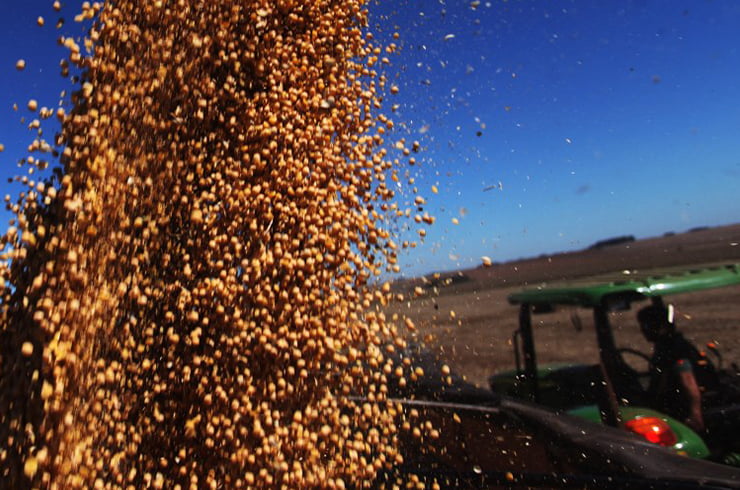
Despite having more than 2,000 registered formulated products, Brazil has low availability of seed treatment (TS) products in some crops and unwanted biological targets. This is what the Abrasem study (Brazilian Association of Seeds and Seedlings) points out.
No less than 98% from hybrid corn seeds and 70% from soybean seeds are treated in Brazilian agriculture. It is the seed treatment that allows the control of biological objectives in the early stages of cultivation, since many pathogens remain in the soil, such as, for example, fusarium and sclerotinia.
Adoption of TS more than doubled in six years: Market value jumped from $ 360 million in 2009 to $ 870 million in the 2014-15 harvest, showing strong growth and its perception of value by farmers, according to Abrasem data. According to the study, however, said control is "threatened by the low availability of products."
To treat insects in corn, cotton, wheat, peanut and rice seeds, the products available belong to the same mode of action, "which fatally increases the continuing pressure of pest and disease resistance selection," says the research: For many crops with less economic impact, the situation is even more serious, with little or no availability of plant protection products for such treatment. Facts that make the rotation of plant protection products difficult or impossible and, consequently, the management of resistance. "
According to official data, there are 82 registered products for seed treatment (including carbofuran-based PF): for soybean cultivation, 61; for corn, 52. For beans, cotton and wheat, respectively, 44, 42 and 39 formulated products are registered for the TS. For the cultivation of peanuts, 18 products; irrigated rice, six products; melon and watermelon only one and for papaya, for example, without product.
"In view of the fragile scenario in the availability of plant protection products for seed treatment, both for crops with high economic representation and for crops with less representativeness, adjustments are necessary to correct this dysfunction, given the impossibility of practicing rotation of products and the correct management of resistance to pests and diseases, "concludes the Abrasem study.
Soon, the Agrolink Portal will present a new report based on this study that will identify the "critical biological objectives" identified by Abrasem that should be prioritized due to the low availability of products for the treatment of seeds, otherwise it would compromise Brazilian agriculture.
